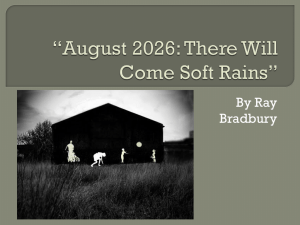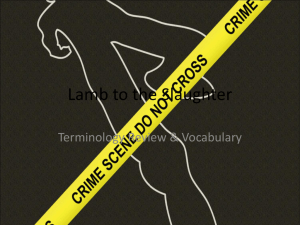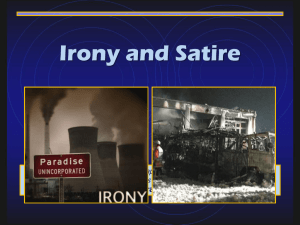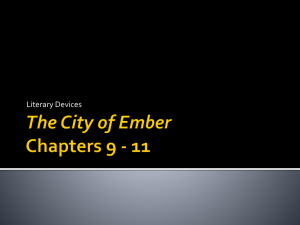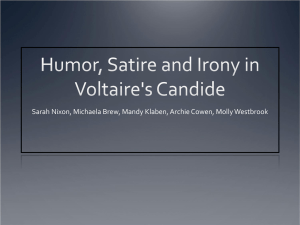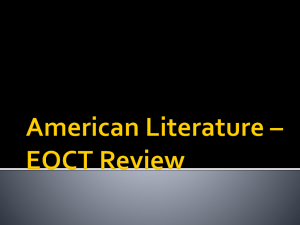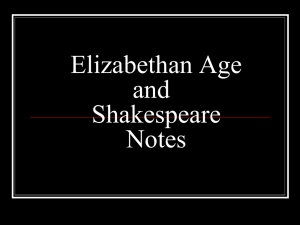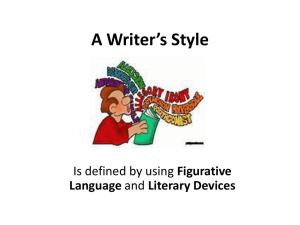IRONY - Mehmet
advertisement
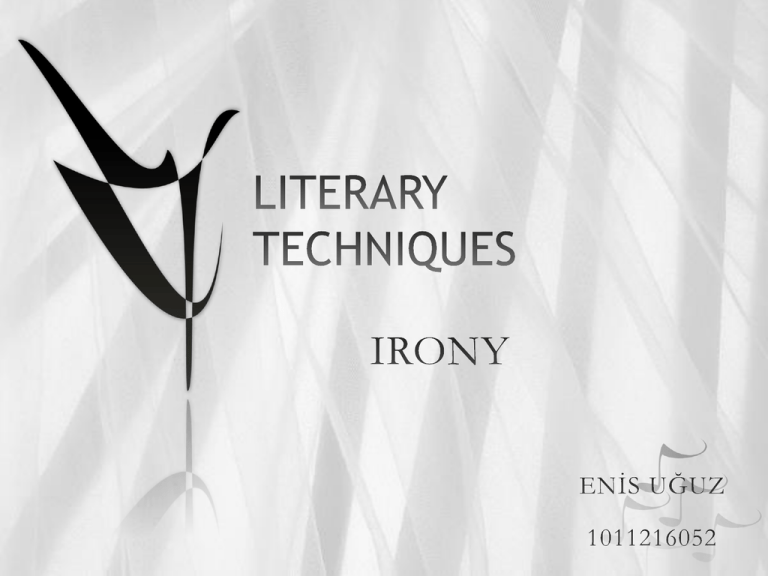
A literary term referring to how a person, situation, statement, or circumstance is not as it would actually seem. Many times it is the exact opposite of what it appears to be. There are many types of irony, the three most common being verbal irony, dramatic irony, and situational irony. Verbal irony is traditionally defined as the use of words to convey something other than, and especially the opposite of the literal meaning of the words. One classic example is a speaker saying, “What lovely weather we are having!” as she looks out at a rainstorm intending to express her dissatisfaction with the weather. In Act III Scene V of Romeo and Juliet by William Shakespeare; Juliet has fully made up her mind to be married to Romeo, so she ironically states to her mother "…I will not marry yet; and, when I do, I swear it shall be Romeo, whom you know I hate, rather than Paris …" In Julius Caesar by William Shakespeare, Mark Antony says "Yet Brutus says he was ambitious; And Brutus is an honourable man". Mark Antony really means that Brutus is dishonourable. George Orwell's allegorical commentary on communism, Animal Farm has many good irony examples. One of the best ones is the change of the commandments that the animals follow, from "No animal may drink alcohol," to “No animal may drink alcohol in excess." A dramatic irony is a situation often found in Hollywood movies and plays by William Shakespeare. It is a situation in which the audience watching it, has some knowledge about the future events that may happen in the situation. However, the character in the situation has the slightest idea about the unforeseen events that he has to face. In, other words, the audience can correctly predict certain future circumstances of the character. In Act 3 Scene 4 and its when Juliet's father, Capulet, agrees and says yes to Paris that Juliet will marry him. The dramatic irony is that the audience knows the truth that Juliet is already married to Romeo and Juliet can not be married to both Paris and Romeo. When Romeo finds Juliet in a drugged sleep, he assumes her to be dead and kills himself. Upon awakening to find her dead lover beside her, Juliet then kills herself. Situational irony is that which results from recognizing the oddness or unfairness of a given situation, irrespective of whether the outcome is positive or negative. Another definition is an outcome that turns out to be very different from what was expected, the difference between what is expected to happen and what actually does. The Wonderful Wizard of Oz is a story whose plot revolves around irony. Dorothy travels to a wizard and fulfills her challenging demands to go home, before discovering she had the ability to go back home all the time. In Lord of the Flies by William Golding, Jack didn't care about a rescue fire, which is all that Ralph ever wanted, but Jack set fire to the island, which turned out to be the rescue fire that saved them. The expression “irony of fate” stems from the notion that the gods (or the Fates) are amusing themselves by toying with the minds of mortals with deliberate ironic intent. One of the best cosmic irony examples would be from O Henry's 'The Gift of the Magi'. To give each other Christmas gifts, the wife cuts off her beautiful long hair to a wig-maker for money and buys a chain for her husbands heirloom pocket watch. Meanwhile, the husband sells his heirloom watch to buy his wife pretty combs for her long and beautiful hair. In the novel series Harry Potter, the evil Lord Voldemort , seeing Harry as a threat to his power and life he sets out to kill this baby, however, he fails due to Harry's mother's sacrifice forming protection. This in turn causes the connection between Harry and the Dark Lord to form. As Albus Dumbledore realises, setting store by the prophecy was a choice, but in choosing to believe it, Voldemort then made it a reality. Comic irony : Irony that is humorous (whereas much irony is not) Tragic irony : A type of dramatic irony. In tragic irony, a character's actions lead to consequences that are both tragic, and contrary to the character's desire and intentions. Historical irony: A kind of situational irony that takes a long period of years for the irony to become evident. Socratic irony : When a person asks questions, pretending not to understand, to lure the interlocutor into a logical trap

